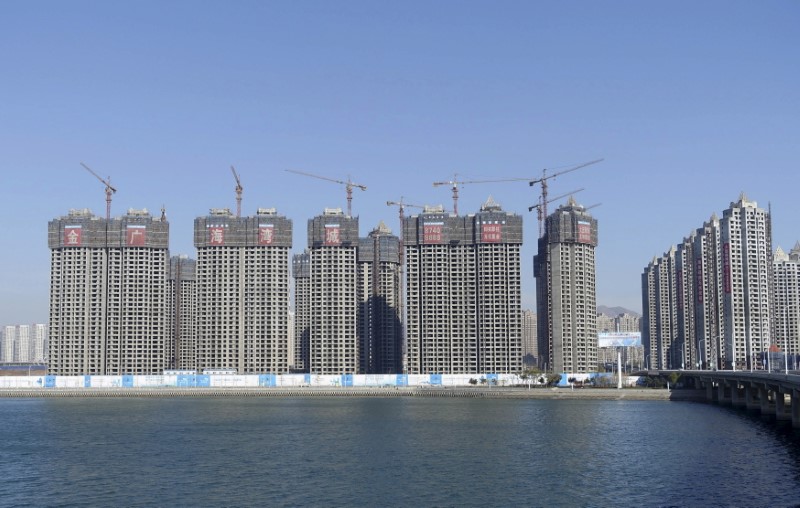BEIJING (Reuters) - At least twelve major Chinese cities are requiring newly bought homes to be held for at least two to three years before they can be sold, the first time ever that cities in the country are taking such measures and suggesting intensified government efforts to cool the red-hot property market.
The cities of Dongguan and Yangzhou - two major Chinese cities near the technology hub of Shenzhen and the financial hub of Shanghai, respectively - joined the list of cities seeking to restrict property supply to crack down on short-term speculation.
Home owners who received property ownership certificate to their properties less than two years ago are not allowed to sell them in Dongguan and Yangzhou, effective Tuesday, according to the respective official statements posted on each government's website.
Yangzhou's new rules, though, were slightly more relaxed compared to Dongguan's as they only applied to sellers with two or more properties in the city.
These kinds of restrictions were the first such in the Chinese government's intervention history, analysts said, with some calling it a major policy innovation.
"These measures hit speculators looking for short-term gains very hard," said Beijing-based chief analyst Zhang Dawei with Centaline, a property agency.
The new curbs came as China has stepped up the fight to contain rebounding home price growth in recent months, with at least 50 Chinese cities slapping harsher measures such as raising downpayment ratio for second-home buyers since mid-March.
The southeastern port city of Xiamen was the first Chinese city to introduce such bans on property sales in late March.

Since then, 11 other cities - Fuzhou, Qingdao, Hangzhou, Guangzhou, Zhuhai, Huizhou, Changzhou, Changle, Qidong, and now Yangzhou and Dongguan - have followed suit by adopting similar rules, Centaline estimated.